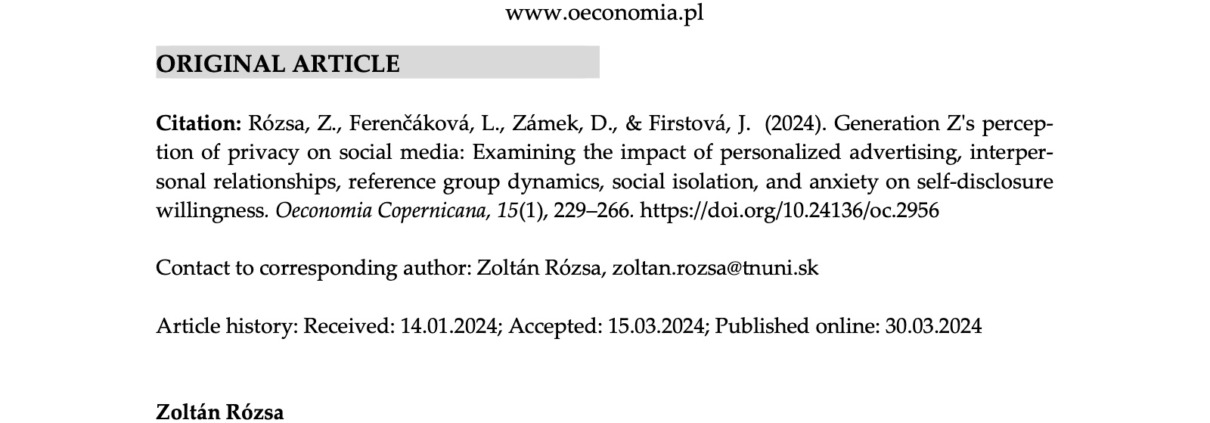Generation Z’s perception of privacy on social media: Examining the impact of personalized advertising, interpersonal relationships, reference group dynamics, social isolation, and anxiety on self-disclosure willingness
Research background
Consumers frequently exchange personal data for limited benefits from digital services, despite privacy concerns. This data enables digital providers to tailor content and enhance marketing communication, and digital services’ effectiveness and efficiency.
Purpose of the article
Utilizing the principles of privacy calculus theory, this study aims to identify how attitudes towards advertising (ATT), perception of advertising credibility (CRE), consumer susceptibility to interpersonal (II) and reference group influence (RGI), social isolation (SI) and social anxiety (SA) influence the willingness of Generation Z to disclose personal information on social media derived from the Generation Z privacy concerns (PC) and develop a prediction model for such behavior.
Methods
Data was gathered using an online self-administered questionnaire from a sample of 451 Generation Z individuals. A non-random convenient sampling technique and binary logistic regression were used to quantify the influence of selected independent variables on the dispersion of values in the dependent variable under investigation.
Findings & value added
The results highlight that Generation Z’s self-disclosure willingness on social media is significantly influenced by attitudes toward advertising and consumer susceptibility to reference group influence. The effect of social isolation was also close to the required level of statistical significance. It means that positive attitudes towards advertising and high susceptibility to influence from reference groups enhance the probability of personal information disclosure. Being one of the few studies to address factors that influence the willingness of Generation Z to disclose personal information on social media, this study stands out for its holistic approach. Thus, combining various interconnected elements provides a fresh perspective to comprehend the intricate dynamics of Generation Z’s relationship with privacy on social media.
Keywords
privacy on social media; personalized advertising; self-disclosure; privacy calculus theory
Source
Rózsa, Z., Ferenčáková, L., Zámek, D., & Firstová, J. (2024). Generation Z’s perception of privacy on social media: Examining the impact of personalized advertising, interpersonal relationships, reference group dynamics, social isolation, and anxiety on self-disclosure willingness. Oeconomia Copernicana, 15(1), 229–266. https://doi.org/10.24136/oc.2956


